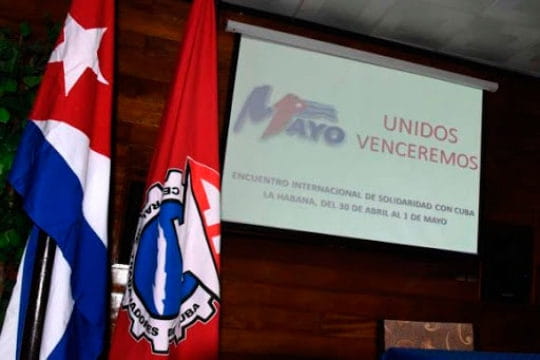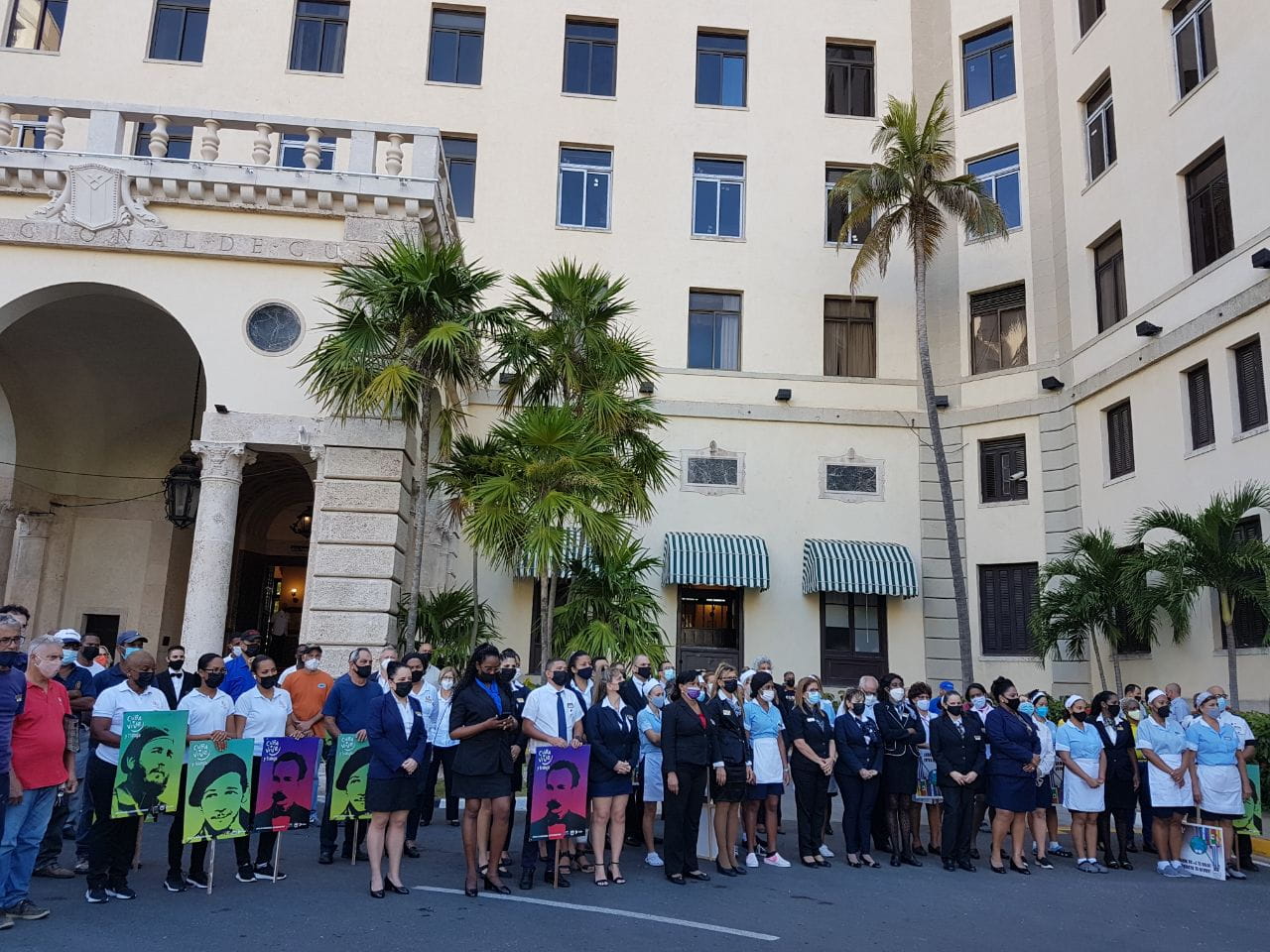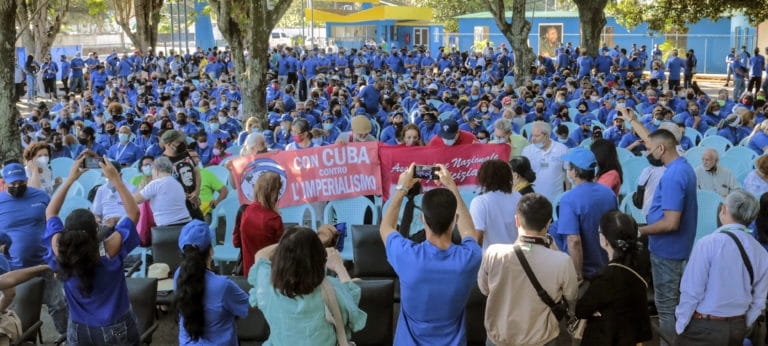
International Meeting of Solidarity with Cuba concludes this Monday in Havana.
After intense days lived in the workplaces, in the neighborhoods and in the May Day parade in the Plaza de la Revolución, more than 1,500 friends from different parts of the world will share their experiences this Monday at the Havana Convention Palace in three commissions organized around Solidarity with the just causes of the peoples; The world economic crisis, COVID-19 and the right of the peoples to life; and Unity in diversity in the anti-imperialist struggle of the peoples.
Trabajadores newspaper reports that the closing of the day will be in plenary, where all the delegates will hear the reports of each commission and a final declaration is expected to condemn the U.S. economic, commercial and financial blockade against Cuba, as well as all the coercive and unilateral imperial measures with which they punish the peoples who do not allow themselves to be subjugated by the empire of capital. The text will also include the work projections for the coming years.
This newspaper reports that the first World Meeting of Solidarity with Cuba took place in November 1994, in the Karl Marx Theater of the Cuban capital, just when, after the collapse of socialism in Europe, the Revolution was considered lost. On that occasion, the Antillean country received nearly 2,500 people from 108 countries, among them 77 parliamentarians from Latin America, Europe and Africa, as well as Nobel Prize winners Gabriel García Márquez and Wole Soyinka, and Nobel Peace Prize winners Rigoberta Menchú and Adolfo Pérez Esquivel. The sessions at that time were chaired by Commander in Chief Fidel Castro Ruz.
From then on, it became customary to convene this type of meetings, and the idea of holding them on May 2 became established, as a closing event for the participation of trade unionists and foreign friends in the multitudinous and colorful May Day parade.
After two years of pandemic pause, during which the event was organized virtually, the organizing committee - made up of the CTC, the Cuban Institute of Friendship with the Peoples, the Federation of Cuban Women, the Committees for the Defense of the Revolution and other organizations - decided to extend the days of the Encounter and include visits to workplaces and communities, the two scenarios where the hostile policy of the United States against the Cuban people has left the greatest mark.

Hotel Nacional de Cuba receives members of the International May First Brigade. Photo: Yanirys Vicente Legrá
This year, more than 1,500 delegates, divided into groups, visited on the morning of Saturday, April 30, the Center for Genetic Engineering and Biotechnology (CIGB); the Cerro Pelado High Performance School; the Hotel Nacional de Cuba; the "Evelio Prieto Guillama" Bus Production Company; the AUTOCHAPT Non-State Cooperative; LABIOFAM; the Central Palace of Computers and Electronics; the Caribbean Drydock Company S. A.; the Cuban Milling Industry of Cuba; the Cuban National Hotel; the "Evelio Prieto Guillama" Bus Production Company; the Cuban National Hotel; the "Evelio Prieto Guillama" Bus Production Company; the AUTOCHAPT Non-State Cooperative; LABIOFAM; the Central Palace of Computers and Electronics; the Caribbean Drydock Company S. A; Industria Molinera de Regla and Empresa Eléctrica de La Habana.

Union members visited LABIOFAM. Photo: Heriberto González
In the afternoon, they shared with neighbors of neighborhoods in transformation such as La Corbata, in Playa; Jesús Menéndez and Rancho-Jalisco, in Boyeros; Libertad, Villa Cuquine, in La Lisa; the Popular Council Pocito and Palmar, in Marianao; La Timba, in Plaza; Los Sitios, Quisicuaba Project, in Centro Habana; the historical centers of Guanabacoa and Regla; as well as El Chalet, in Artemisa.
Trade unionists from Peru, Argentina, the United States, Barbados, Brazil and Venezuela who participated in the May Day activities in Cuba spoke out against the intensified blockade that successive U.S. administrations have imposed on the Cuban people for more than 60 years.
As part of the program of activities for the International Workers' Day, the visitors held a solidarity meeting at the Unidad Empresarial de Base Cereales Turcios Lima, in the municipality of Regla, where managers and innovators explained to the activists how Washington's blockade hinders milling production and how they face it to ensure that bread reaches homes and soy yogurt reaches children, to cite just two examples, among many others.